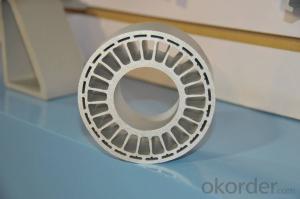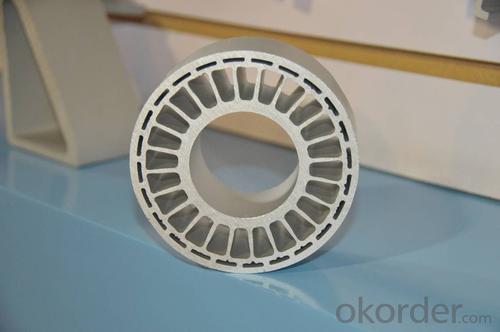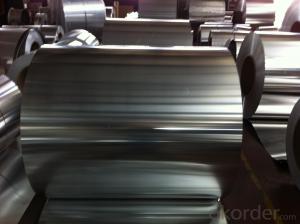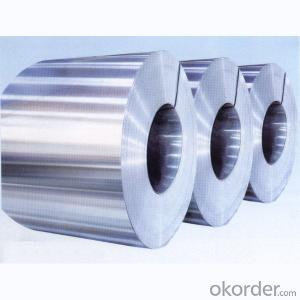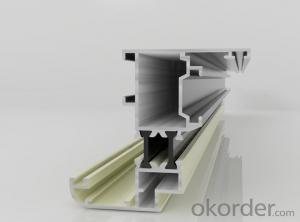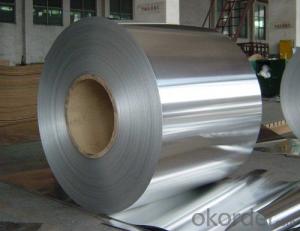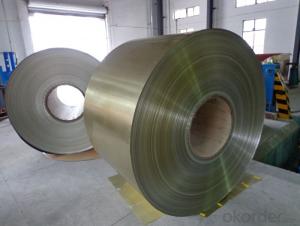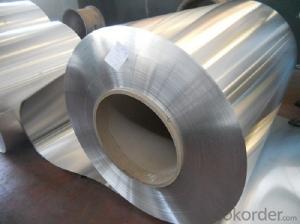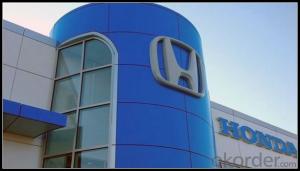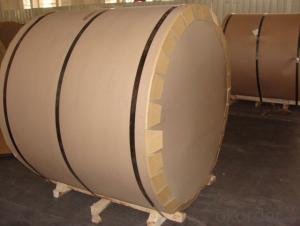040 Aluminum Coils for Aluminum Profiles of Automated Equipment
- Loading Port:
- Shanghai
- Payment Terms:
- TT OR LC
- Min Order Qty:
- 5 m.t.
- Supply Capability:
- 1000 m.t./month
OKorder Service Pledge
OKorder Financial Service
You Might Also Like
Specification
1. Structure of Aluminum Profiles for Roller of Automate Equipment Description
Aluminum Profiles for Roller of Automate Equipment is one semi-finished aluminium material. The alloy AA6063 is widly used in building, industry ect. Its weight is much lower than steel. So many customers choosed aluminium material instead of steel.
2. Specification of Aluminum Profiles for Roller of Automate Equipment
Aluminum Profiles for Roller of Automate Equipment | |
Main Specification | |
Alloy | AA1xxx (AA1050, AA1060, AA1070, AA1100 etc.) |
AA3xxx (AA3003, AA3004, AA3005, AA3105 etc.) | |
AA5xxx, AA6XXX (AA5052,AA5083, AA5754, AA6061, AA6062 etc.) | |
AA8xxx(AA8011, AA8006 etc.) | |
Temper | H14,H16, H18, H22, H24, H26, H32,O/F, T4, T6, T651 |
Thickmess | 0.01mm-100mm |
Width | 30mm-1700mm |
Standard | GB/T 3880-2006/ASTM |
Special specification is available on customer's requirement | |
3. Application of Aluminum Profiles for Roller of Automate Equipment
(1).Interior: wall cladding, ceilings, bathrooms, kitchens and balconies, shutters, doors...
(2).Exterior: wall cladding, facades, roofing, canopies, tunnels,column covers , renovations...
(3).Advertisement: display platforms, signboards, fascia, shop fronts...
4. Feature of Aluminum Profiles for Roller of Automate Equipment
Surfact Quality :
Be free from Oil Stain, Dent, Inclusion, Scratches, Stain, Oxide Dicoloration, Breaks, Corrosion, Roll Marks, Dirt Streaks and other defect which will interfere with use,
Mechenical Property:
Chemical Composite and Mechanical Property
5. Certificate of Aluminum Profiles for Roller of Automate Equipment
SGS and ROHS(if client request, paid by client), MTC(plant provided), Certificate of Origin(FORM A, FORM E, CO), Bureau Veritas and SGS (if client request, paid by client), CIQS certificate
6. Image of Aluminum Profiles for Roller of Automate Equipment
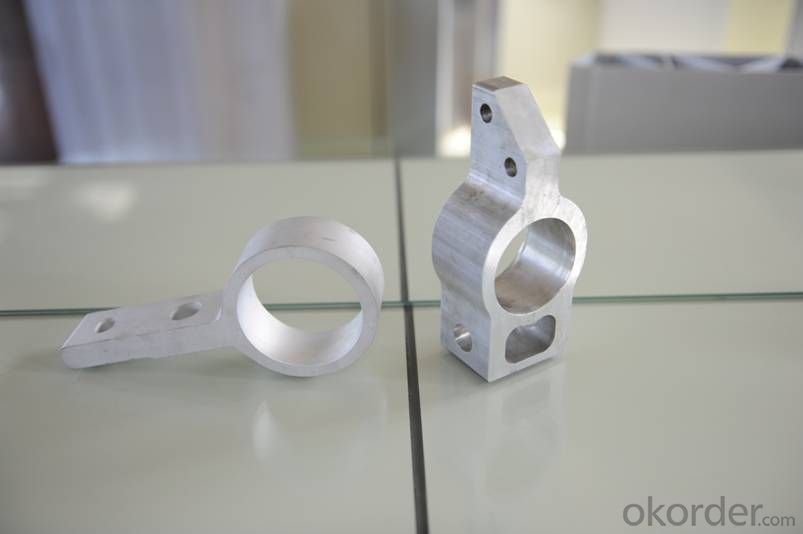
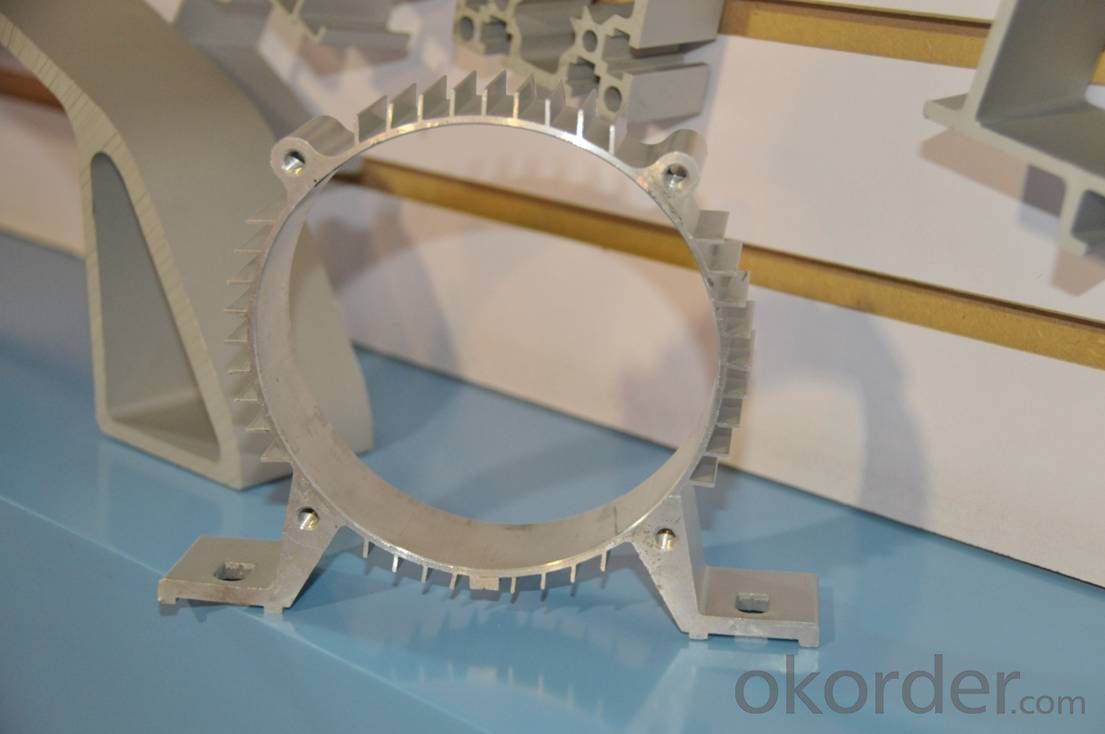
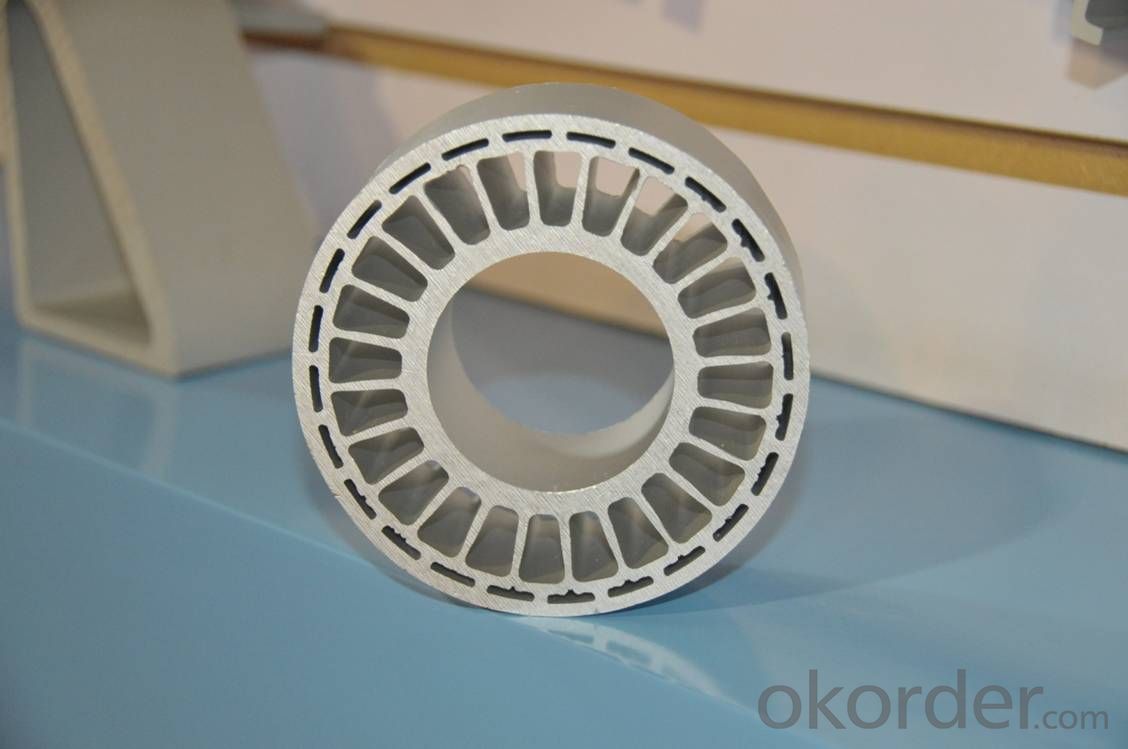
7. Package and shipping of Aluminum Profiles for Roller of Automate Equipment
First, plastic cloth with drying agent inside; Second, Pearl Wool ; Third, wooden cases with dry agent , fumigation wooden pallets, aluminum surface could cover blue PVC film
8. FAQ
1) What is the delivery time?
Depends on actual order, around 20 to 35 days
2) What is the QC system:
We have QC staff of 20 persons and advanced equipment, each production is with MTC traced from Aluminum ingot lot.
3) What market do you mainly sell to?
Australia, America, Asia, Middle East, Western Europe, Africa etc
- Q: How to measure the thickness of aluminum coil at real time? In what areas can the sensor be used?
- Displacement sensor can be used in many areas, such as industry.
- Q: 1mm how much is one square meter for aluminum rolls?
- The price of aluminum sheet is calculated according to the price of aluminum ingot + processing fee (aluminum plate state), and the specific price is also different according to the size and size of aluminum sheet.
- Q: What are the energy efficiency benefits of aluminum coils?
- Aluminum coils offer several energy efficiency benefits. Firstly, aluminum is a highly conductive material, allowing for faster and more efficient heat transfer compared to other coil materials. This leads to improved cooling or heating performance, reducing energy consumption. Additionally, aluminum coils are lightweight, which means less energy is required to move them, resulting in energy savings during transportation and installation. Moreover, aluminum's corrosion resistance properties ensure the longevity of the coils, reducing the need for frequent replacements and minimizing overall energy consumption. Lastly, aluminum is a recyclable material, contributing to sustainability and reducing the energy-intensive process of manufacturing new coils.
- Q: What are the different surface finishes available for aluminum coils?
- There are several different surface finishes available for aluminum coils, including mill finish, brushed finish, embossed finish, anodized finish, and painted finish.
- Q: Are aluminum coils suitable for architectural cladding applications?
- Aluminum coils, indeed, are well-suited for architectural cladding applications. The versatility of aluminum as a material offers a multitude of advantages when it comes to cladding purposes. To begin with, aluminum's lightweight properties make it effortlessly manageable and installable. This not only lessens the burden on the building structure but also simplifies the construction process as a whole. Moreover, aluminum exhibits exceptional durability and resistance against corrosion. Consequently, it becomes an ideal selection for exterior applications, withstanding even the harshest of weather conditions while preserving its appearance over time. In addition to its durability, aluminum coils possess the ability to be fabricated into various shapes and sizes, allowing for a flexible design approach. They can be effortlessly formed, cut, and molded to precisely meet the specific requirements of any given building project. Architects and designers also benefit from the wide range of finishes and colors available in aluminum. This provides them with ample options to achieve the desired aesthetic for the cladding. Furthermore, opting for aluminum aligns with the growing emphasis on environmentally friendly construction practices, as it is entirely recyclable. Overall, the myriad of advantages, including versatility, durability, lightweight nature, aesthetic options, and sustainability, make aluminum coils a fitting choice for architectural cladding applications.
- Q: How are aluminum coils used in the production of furniture?
- Aluminum coils are widely used in the production of furniture due to their various beneficial properties. These coils are typically made from high-quality aluminum alloy, which offers excellent corrosion resistance, durability, and lightweight characteristics. In the furniture manufacturing process, aluminum coils are primarily used for creating the framework or structure of the furniture pieces. They are often formed into various shapes and profiles to provide the necessary strength and rigidity required for the furniture item. The coils can be easily bent, cut, and joined together to create different components such as chair frames, table legs, or cabinet structures. This versatility allows manufacturers to design and produce furniture with intricate and customized shapes and sizes. Moreover, aluminum coils are highly adaptable to different finishing techniques. They can be anodized, painted, or powder-coated to enhance their aesthetic appeal and provide additional protection against wear and tear. This makes aluminum-coiled furniture resistant to scratches, stains, and fading, ensuring longevity and a visually appealing appearance. Additionally, aluminum coils offer a lightweight alternative to other materials like steel or wood, making furniture easier to transport and handle. This is particularly advantageous in the case of outdoor furniture or pieces that need to be frequently moved or rearranged. Furthermore, aluminum is a sustainable and environmentally friendly material. It is 100% recyclable, allowing manufacturers to reduce their carbon footprint and contribute to a more sustainable production process. In summary, aluminum coils play a vital role in the production of furniture by providing strength, durability, versatility, and aesthetic appeal. Their use in furniture manufacturing helps create lightweight, customizable, and sustainable furniture pieces that meet the demands of modern consumers.
- Q: Can aluminum coils be used for food processing equipment?
- Yes, aluminum coils can be used for food processing equipment. Aluminum is a popular material choice for its excellent heat transfer properties, corrosion resistance, and lightweight nature. It is commonly used in the construction of food processing equipment such as heat exchangers, evaporators, and condensers.
- Q: Can aluminum coils be used for automotive body panels?
- Yes, aluminum coils can indeed be used for automotive body panels. In fact, aluminum is becoming increasingly popular in the automotive industry due to its many advantages. Aluminum is lightweight, which can contribute to improved fuel efficiency and overall performance of the vehicle. Additionally, aluminum has excellent corrosion resistance properties, making it a durable choice for automotive body panels. Moreover, aluminum can be easily formed and molded, allowing for intricate designs and better aerodynamics. Overall, the use of aluminum coils for automotive body panels is a viable option that offers numerous benefits.
- Q: What are the methods to prevent rust formation on steel coils during storage and transportation?
- <p>To prevent rust on steel coils during storage and transportation, follow these steps: 1. Keep the coils dry and avoid exposure to moisture. 2. Use rust inhibitors or anti-corrosion coatings on the coils. 3. Store the coils in a clean, dry, and well-ventilated area. 4. Use protective wrapping materials like plastic film or corrosion-resistant paper. 5. Ensure proper stacking and avoid direct contact between coils. 6. Use rust-resistant materials for transportation containers. 7. Regularly inspect the coils for signs of rust and address any issues promptly. By implementing these measures, you can significantly reduce the risk of rust formation on steel coils.</p>
- Q: Roll presented above 1 complete circles are brineling put on work roll after the new rolling, less than 12 volumes in the aluminum surface will be presented in the corresponding position of a straight roller, a roller indentation in the above, check the work roll above a pit. Replace the upper support roll for only a few days. Want to know what's going on?Should not be bearing problems, because the bearings have been used for almost 4 years, it should not be bearing problems, and now they are suspected of bending cylinder seal problems, oil seepage phenomenon.
- Substandard products how to leave the factory, if not for external reasons, that is, when the design and installation of bearings, specifically, you find manufacturers to come to repair
Send your message to us
040 Aluminum Coils for Aluminum Profiles of Automated Equipment
- Loading Port:
- Shanghai
- Payment Terms:
- TT OR LC
- Min Order Qty:
- 5 m.t.
- Supply Capability:
- 1000 m.t./month
OKorder Service Pledge
OKorder Financial Service
Similar products
Hot products
Hot Searches
Related keywords
